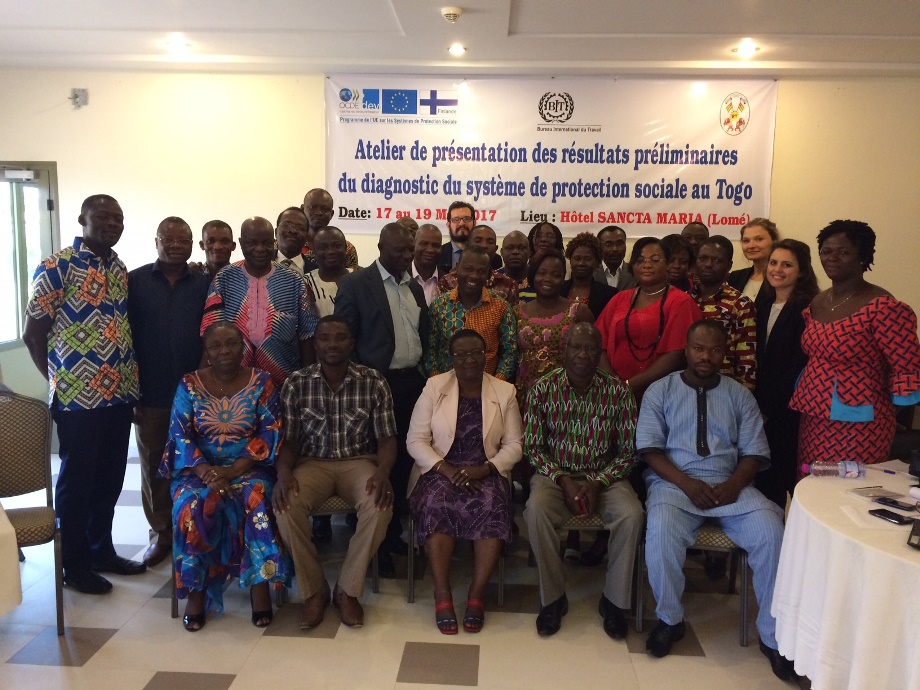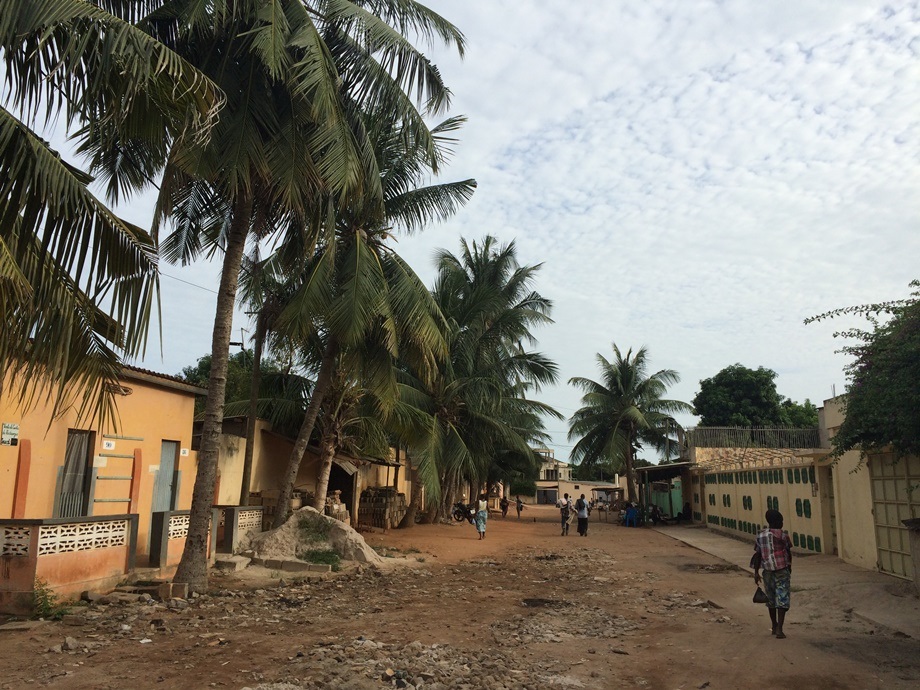Mapping the social protection programme options with the ISPA-SPPOT tool
Mapping the social protection programme options for Togo
The Government of Togo requested the piloting of the Social Protection Policy Options Tool (SPPOT) by the EU-SPS programme in Togo. The SPPOT, developed by the Social Protection Inter-agency Cooperation Board (SPIAC-B), identifies strengths and gaps in the social protection system through a mapping of all existing programmes, including an analysis of the coverage and adequacy of social transfers as well as an institutional and financial analysis.
Need for a more inclusive and broad social protection in Togo
Togo is a low income country where the poverty rate remains high. As in many other countries, the social and economic development has been impacted by the 2008 global crisis and furthered by the fast population growth. There are vast differences between urban and rural living conditions and the poverty rate tends to be higher in the rural areas. The main causes for poverty and vulnerability in Togo are found in food insecurity, lack of access to health care and unemployment.
The social protection system currently in place in Togo is insufficient to meet the needs of its population. Furthermore, informal economy workers are largely left out from the statutory social protection systems. The social protection programmes are limited in their coverage and often funded by development aid, thus vulnerable and dependable to donor funds.
EU-SPS supports the government to boost social protection
The social protection system currently in place in Togo is insufficient to meet the needs of its population. Furthermore, informal economy workers are largely left out from the statutory social protection systems. The social protection programmes are limited in their coverage and often funded by development aid, thus vulnerable and dependable to donor funds.
The country’s government has recently, however, taken firm steps towards improving the social protection system in the county. As part of the government’s efforts to develop its system in place, it has requested EU-SPS Programme’s support in conducting a diagnostic using the Social Protection Policy Options Tool (SPPOT). The process has been underway in Togo since the end of 2016 in partnership with the ILO. The findings of this comprehensive analysis will inform the Government’s new Social Protection Strategy.
Priorities for Togolese social protection identified through participatory process
The SPPOT pilot in Togo was launched in November 2016. Data collection for the analysis of the Togolese social protection system is based took place in 2016 and 2017. The process included trainings for the local and regional level professionals, as well as for the decision-makers at the central government level in Lomé. The trainings focused both on social protection at large and on the SPPOT tool specifically. The process has been participatory with all key national social protection stakeholders, including representatives of relevant ministries, employers and workers unions as well as international partners invited to participate in the process throughout.
The final results were presented in a workshop in October 2017 which focused on discussing results from the poverty analysis and from the costing exercise of policy options, aimed at finalizing the recommendations on social protection policy options. The costing exercise process included a mapping of the costs for various social protection options, such as maternity benefits, basic healthcare, and old age pensions. The October workshop included also comprehensive capacity building elements, allowing participants of the workshop to use the costing tool to see the impacts of various policy choices on poverty, and the costs depending on program parameters such as transfer amounts or targeting. In addition, the workshop concluded with group work identifying recommendations for policy options taking into account their costs.
The results of this exercise will inform the Government’s new Social Protection Strategy. The findings from the workshop held in October 2017, the poverty analysis and previous elements developed in the process will be compiled into a final report to be shared with the Government of Togo.

SPPOT: an assessment-based tool for national dialogue
The objective of the SPPOT is to provide evidence and facilitate the process of national dialogue and decision-making regarding institutional arrangements, priorities for the social protection system, and long term financing options. The process is also intended to strengthen the capacity of decision makers while promoting ownership by the technical community.
In the context of the joint work of the Social Protection Interagency Board (SPIAC-B) on the development of an assessment tool for the performance of national social protection systems (Core Diagnostic Instrument, CODI), the development of an assessment of different policy reform options based on a national dialogue and international principles was proposed by the ILO. The SPPOT pilot carried out in Togo is the first pilot of the tool part of the development process of the ISPA tools.
For more information on the ISPA tools, please visit:
ISPA - Interagency Social Protection Assessments




